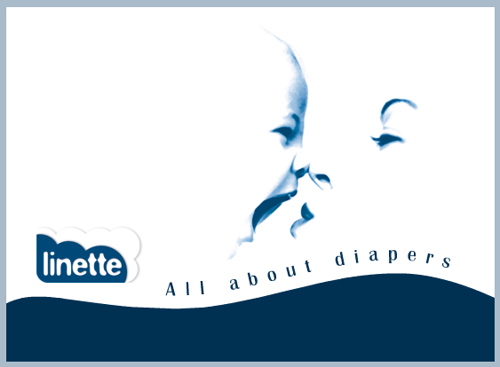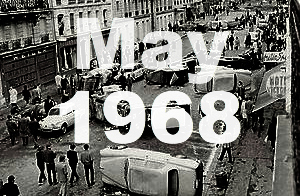It’s a question that we’ve discussed here many times over the past half-dozen years – how Christian were the founding fathers? And this weekend’s New York Times magazine goes into a great deal of depth on the subject, while exploring the current battle being waged within the Texas School Board on the rewriting of American history textbooks. Here’s a clip:
…The Christian “truth” about America’s founding has long been taught in Christian schools, but not beyond. Recently, however — perhaps out of ire at what they see as an aggressive, secular, liberal agenda in Washington and perhaps also because they sense an opening in the battle, a sudden weakness in the lines of the secularists — some activists decided that the time was right to try to reshape the history that children in public schools study. Succeeding at this would help them toward their ultimate goal of reshaping American society. As Cynthia Dunbar, another Christian activist on the Texas board, put it, “The philosophy of the classroom in one generation will be the philosophy of the government in the next”….
There was a religious element to the American Revolution, which was so pronounced that you could just as well view the event in religious as in political terms. Many of the founders, especially the Southerners, were rebelling simultaneously against state-church oppression and English rule. The Connecticut Baptists saw Jefferson — an anti-Federalist who was bitterly opposed to the idea of establishment churches — as a friend. “Our constitution of government,” they wrote, “is not specific” with regard to a guarantee of religious freedoms that would protect them. Might the president offer some thoughts that, “like the radiant beams of the sun,” would shed light on the intent of the framers? In his reply, Jefferson said it was not the place of the president to involve himself in religion, and he expressed his belief that the First Amendment’s clauses — that the government must not establish a state religion (the so-called establishment clause) but also that it must ensure the free exercise of religion (what became known as the free-exercise clause) — meant, as far as he was concerned, that there was “a wall of separation between Church & State.”
This little episode, culminating in the famous “wall of separation” metaphor, highlights a number of points about teaching religion in American history. For one, it suggests — as the Christian activists maintain — how thoroughly the colonies were shot through with religion and how basic religion was to the cause of the revolutionaries. The period in the early- to mid-1700s, called the Great Awakening, in which populist evangelical preachers challenged the major denominations, is considered a spark for the Revolution. And if religion influenced democracy then, in the Second Great Awakening, decades later, the democratic fervor of the Revolution spread through the two mainline denominations and resulted in a massive growth of the sort of populist churches that typify American Christianity to this day.
Christian activists argue that American-history textbooks basically ignore religion — to the point that they distort history outright — and mainline religious historians tend to agree with them on this. “In American history, religion is all over the place, and wherever it appears, you should tell the story and do it appropriately,” says Martin Marty, emeritus professor at the University of Chicago, past president of the American Academy of Religion and the American Society of Church History and perhaps the unofficial dean of American religious historians. “The goal should be natural inclusion. You couldn’t tell the story of the Pilgrims or the Puritans or the Dutch in New York without religion.” Though conservatives would argue otherwise, James Kracht said the absence of religion is not part of a secularist agenda: “I don’t think religion has been purposely taken out of U.S. history, but I do think textbook companies have been cautious in discussing religious beliefs and possibly getting in trouble with some groups.”
Some conservatives claim that earlier generations of textbooks were frank in promoting America as a Christian nation. It might be more accurate to say that textbooks of previous eras portrayed leaders as generally noble, with strong personal narratives, undergirded by faith and patriotism. As Frances FitzGerald showed in her groundbreaking 1979 book “America Revised,” if there is one thing to be said about American-history textbooks through the ages it is that the narrative of the past is consistently reshaped by present-day forces. Maybe the most striking thing about current history textbooks is that they have lost a controlling narrative. America is no longer portrayed as one thing, one people, but rather a hodgepodge of issues and minorities, forces and struggles. If it were possible to cast the concerns of the Christian conservatives into secular terms, it might be said that they find this lack of a through line and purpose to be disturbing and dangerous. Many others do as well, of course. But the Christians have an answer.
Their answer is rather specific. Merely weaving important religious trends and events into the narrative of American history is not what the Christian bloc on the Texas board has pushed for in revising its guidelines. Many of the points that have been incorporated into the guidelines or that have been advanced by board members and their expert advisers slant toward portraying America as having a divinely preordained mission. In the guidelines — which will be subjected to further amendments in March and then in May — eighth-grade history students are asked to “analyze the importance of the Mayflower Compact, the Fundamental Orders of Connecticut and the Virginia House of Burgesses to the growth of representative government.” Such early colonial texts have long been included in survey courses, but why focus on these in particular? The Fundamental Orders of Connecticut declare that the state was founded “to maintain and preserve the liberty and purity of the Gospel of our Lord Jesus.” The language in the Mayflower Compact — a document that McLeroy and several others involved in the Texas process are especially fond of — describes the Pilgrims’ journey as being “for the Glory of God and advancement of the Christian Faith” and thus instills the idea that America was founded as a project for the spread of Christianity. In a book she wrote two years ago, Cynthia Dunbar, a board member, could not have been more explicit about this being the reason for the Mayflower Compact’s inclusion in textbooks; she quoted the document and then said, “This is undeniably our past, and it clearly delineates us as a nation intended to be emphatically Christian”…
If the fight between the “Christian nation” advocates and mainstream thinkers could be focused onto a single element, it would be the “wall of separation” phrase. Christian thinkers like to point out that it does not appear in the Constitution, nor in any other legal document — letters that presidents write to their supporters are not legal decrees. Besides which, after the phrase left Jefferson’s pen it more or less disappeared for a century and a half — until Justice Hugo Black of the Supreme Court dug it out of history’s dustbin in 1947. It then slowly worked its way into the American lexicon and American life, helping to subtly mold the way we think about religion in society. To conservative Christians, there is no separation of church and state, and there never was. The concept, they say, is a modern secular fiction. There is no legal justification, therefore, for disallowing crucifixes in government buildings or school prayer.
David Barton reads the “church and state” letter to mean that Jefferson “believed, along with the other founders, that the First Amendment had been enacted only to prevent the federal establishment of a national denomination.” Barton goes on to claim, “ ‘Separation of church and state’ currently means almost exactly the opposite of what it originally meant.” That is to say, the founders were all Christians who conceived of a nation of Christians, and the purpose of the First Amendment was merely to ensure that no single Christian denomination be elevated to the role of state church.
Mainstream scholars disagree, sometimes vehemently. Randall Balmer, a professor of American religious history at Barnard College and writer of the documentary “Crusade: The Life of Billy Graham,” told me: “David Barton has been out there spreading this lie, frankly, that the founders intended America to be a Christian nation. He’s been very effective. But the logic is utterly screwy. He says the phrase ‘separation of church and state’ is not in the Constitution. He’s right about that. But to make that argument work you would have to argue that the phrase is not an accurate summation of the First Amendment. And Thomas Jefferson, who penned it, thought it was.” (David Barton declined to be interviewed for this article.) In his testimony in Austin, Steven Green was challenged by a board member with the fact that the phrase does not appear in the Constitution. In response, Green pointed out that many constitutional concepts — like judicial review and separation of powers — are not found verbatim in the Constitution….
In fact, the founders were rooted in Christianity — they were inheritors of the entire European Christian tradition — and at the same time they were steeped in an Enlightenment rationalism that was, if not opposed to religion, determined to establish separate spheres for faith and reason. “I don’t think the founders would have said they were applying Christian principles to government,” says Richard Brookhiser, the conservative columnist and author of books on Alexander Hamilton, Gouverneur Morris and George Washington. “What they said was ‘the laws of nature and nature’s God.’ They didn’t say, ‘We put our faith in Jesus Christ.’ ” Martin Marty says: “They had to invent a new, broad way. Washington, in his writings, makes scores of different references to God, but not one is biblical. He talks instead about a ‘Grand Architect,’ deliberately avoiding the Christian terms, because it had to be a religious language that was accessible to all people”…












